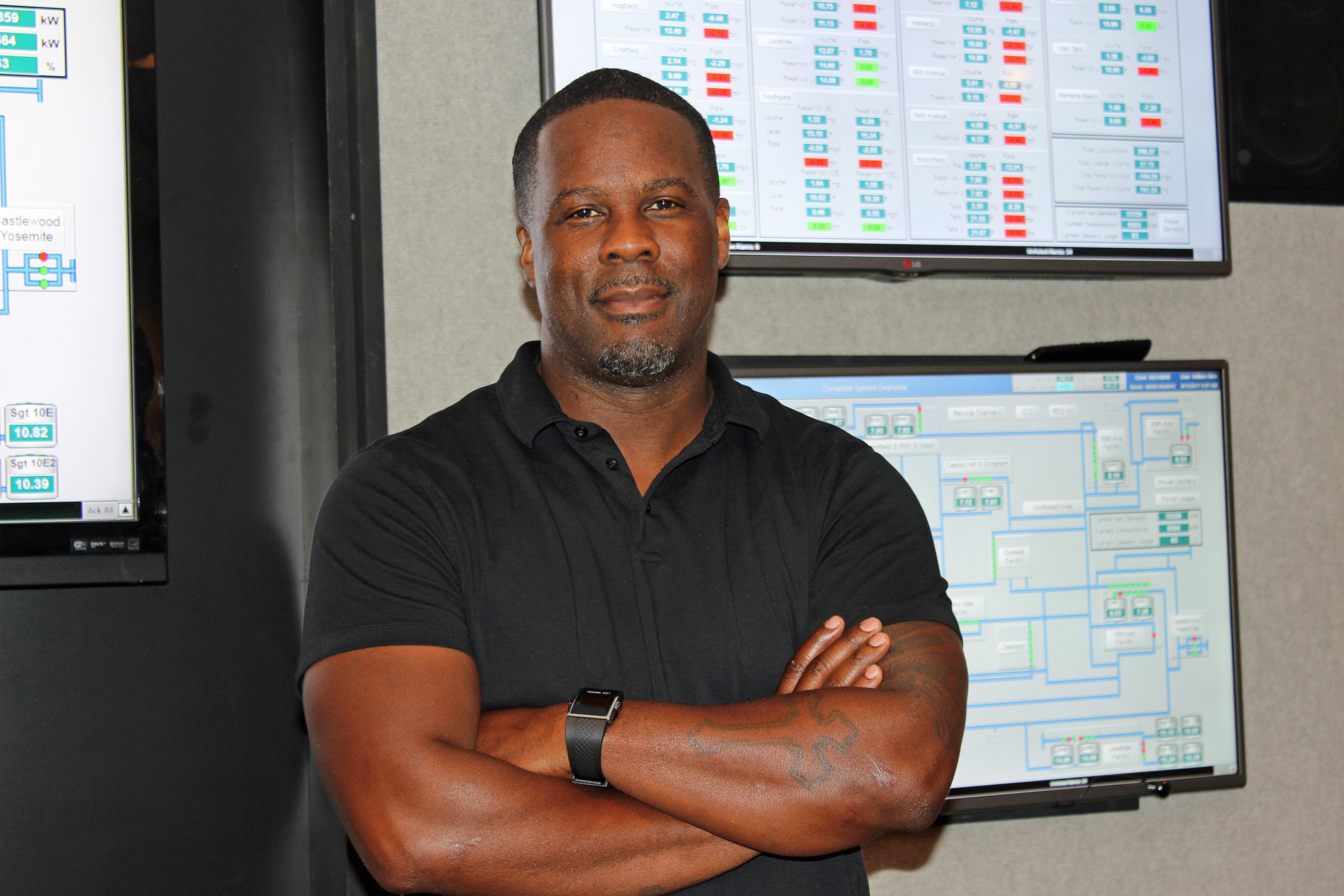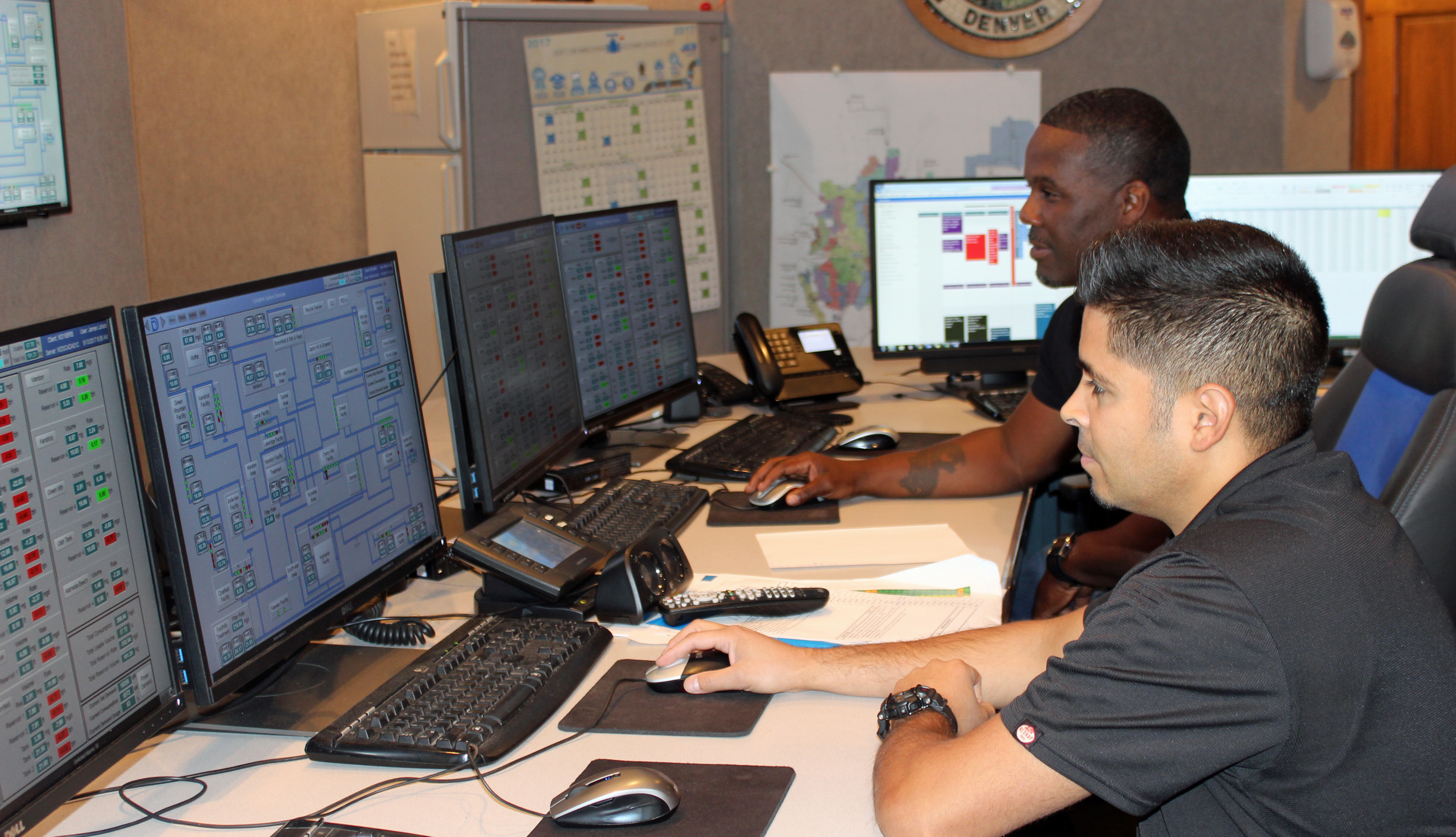
Delivering water with Denver’s chess masters
Like playing a geographically dispersed game of chess with nearly 7,500 pieces, system operators like Phil Malone spend their days monitoring dozens of computer screens, making adjustments and decisions that run Denver Water’s entire water distribution system — one that requires strategy, analysis and forethought with every move.
Operators scan a wall tiled with computer screens to make sure 30 underground treated water storage tanks, more than 3,000 miles of pipe, 140 pressure zones and 23 pump stations are running efficiently.
After more than 20 years operating Denver Water’s complex distribution system, Malone has mastered this chess match.
“Our responsibility is to make sure our water system is ready to meet customer water demands without fail each day, while also making sure water quality remains high and we’re being fiscally responsible. We know we’ve done our jobs well when customers turn on their faucets and our high-quality water flows out,” said Malone.
When Malone first started with Denver Water more than two decades ago, the system could be monitored by a single operator. Due to increased water regulations and Denver Water’s own high standards, the system now requires up to three operators working around-the-clock, monitoring much more than just water quantity. Operators must keep their fingers on the pulse of things like pressure, water quality and energy usage to ensure the system is delivering to Denver Water’s high standards.
With an intricate system that provides water to one-quarter of the state’s population in a 350-square-mile area, pumps, facilities — even entire pipelines — occasionally go down for service, maintenance or repair. Operators must constantly respond to alarms that signal potential real-time problems with everything from equipment and instrumentation to water quality and pressure.
In addition to meeting customers’ water demands, operators also monitor the energy used by our facilities and operations.
With enough pipe to stretch from Los Angeles to New York, four treatment plants, 20 reservoirs and more, it takes a lot of energy to run the water system. To help save energy (and ultimately ratepayer dollars), operators are constantly making adjustments to efficiently manage the amount of energy used around the clock.
“We analyze data and track trends to predict the amount of water needed in a particular part of the city on a given day,” said Malone.
The team analyzes water demand trends, weather patterns and other metrics to run the pumps necessary to push water uphill to storage tanks as much as possible on off-peak hours. During the day, when energy costs peak, operators turn to the gravity-fed portions of the system to move water into storage tanks, instead of powering up energy-intensive pumps.
The decisions operators make throughout the day ensure our treated water storage tanks are filled with water and ready for the morning load, when water use spikes as Denverites turn on their showers, make breakfast and prepare for their day around the same time.
And with more than 7,500 points of data to monitor, operators are always analyzing and making adjustments, 24/7 year-round.
“It’s a high-stress job with serious responsibilities, and working through the nights and fluctuating schedules can be tough. When everyone else is celebrating holidays with friends and family, we’re here making sure our customers have the water they need.”
Although stressful and difficult at times, Malone takes pride in his work. “It’s such an important job. What we do is absolutely vital to the 1.4 million people we serve in Denver, and that’s what’s kept me going for the last 23 years at Denver Water. I know I’m making a difference in our community, even if it’s behind the scenes.”


